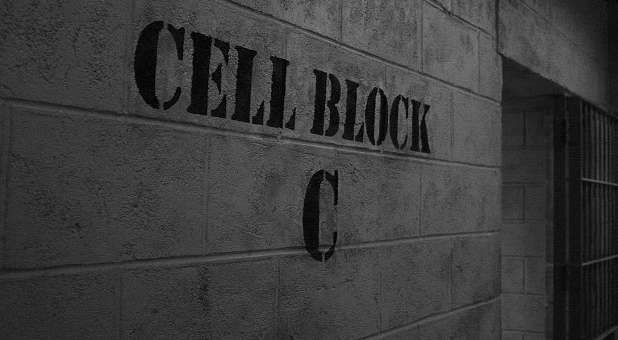Remembering Prisoners: It All Starts with Jesus
In the book of Hebrews, there is an interesting stand-alone verse: “Continue to remember those in prison as if you were together with them” (Heb. 13:3, NIV). Jesus also included visiting those in prison as one of six hallmark qualities of being part of the kingdom of God in His parable of the sheep and the goats in Matthew 25:31-46.
If caring for and visiting those in prison are part and parcel of the Christian life, why do so few evangelical Christians embrace this concept?
When I worked in Washington, D.C., I sometimes changed metro trains at Washington Reagan Airport. I was always greeted with a poster sign on the wall of the train station that read: “Welcome to the United States of America, where more people are incarcerated than any other place in the world.” This hard-to-believe statement is true.
Senator Rand Paul provided the following perspective in a news release (on March 9, 2015): “Though only 5 percent of the world’s population lives in the United States, it is home to 25 percent of the world’s prison population. Not only does the current overpopulated, underfunded system hurt those incarcerated, it also digs deeper into the pockets of taxpaying Americans.”
I have close friends who are in prison: Jerry, Chris, Tim, Bela, Les, Jesse, Shawn, Richard and Charles. They are in prisons throughout the country. Jerry, in Missouri, trades boiled eggs for phone time to call me. Richard, in North Carolina, has worked in a 100-degree cannery factory for pennies a day. Les, a former emergency room physician in Texas, is almost ready to take up a wheelchair because he is not receiving adequate medical care for ruptured discs in his back.
How do I know these men? When I was in college, I met Victor, a student in my Geology class, who became a good friend. He later married a woman who was a Jehovah’s Witness. Concerned that his son would grow up in this church, Victor took his son, in violation of a divorce decree, to another state. Eventually he was found and went to prison.
Through Victor and his friends in prison and by connecting with an organization who supports prisoners called Christian Pen Pal Ministry, I have over the last 30 years attempted to minister to those who are generally shunned by our society. What I have done is small. Visiting inmates and ordering books for them is the least I can do. Placing small amounts of money on prison commissary accounts for aspirin, shoes, and fresh fruit is necessary to survive in prison, so I do what I can.
In the early church, Luke records in the book of Acts that there was no need for government assistance. The church “took care of its own” because “All who believed were together and had all things in common. They sold their property and goods and distributed them to all, according to their need” (Acts 2:44-45).
I believe all my friends in prison, and friends of friends in prison I know, are Christians. So, should the church in America support these shunned souls along with the poor, the friendless and the needy?
In the May 4, 2018 issue of USA Today, the front-page headline reads: Prison violence rises as budgets slashed. The article went on to say that a direct correlation exists between declining state budgets and an increase in prison violence.
In South Carolina, for example, the deadliest prison riot in 25 years resulted in seven inmates being killed on April 15, 2018. South Carolina has the lowest per inmate contribution of $20,053 annually. This means South Carolina and other states have drastically reduced mental health and educational programs for inmates.
There are fewer guards; there are fewer incentives to keep prisoners busy with constructive activities. In Dante’s The Divine Comedy, his volume on hell begins with, “Abandon all hope, ye who enter herein.” What hope do inmates have when society has locked them up and essentially thrown away the key?
The only hope any of us have is in the gospel of Jesus Christ. If Jesus begin His ministry with stating the prophecy from Isaiah was fulfilled “to preach the gospel to the poor … to preach deliverance to the captives and recovery of sight to the blind, to set at liberty those who are oppressed” (Luke 4:18), shouldn’t this be our ministry as well?
We will never know until we embrace “the least of these my brothers” (Matthew 25:40b) that we too are “the least of His mercies,” as the poet George Herbert claimed and inscribed on his signet ring. Jacob cried out to God, “I am not worthy of the least of all the mercies,” when he was facing Esau (Gen. 32:10a, NKJV). So too our lives.
We are also broken souls in great need of God’s mercies and grace. And what we give to those in prison of hope, alms and the gospel, is a gift to God Himself.
Ed Nilson is a graduate of the University of Missouri School of Law. He attended Gordon-Conwell and Princeton Theological Seminaries. He enjoys leading church services and serving the homeless and forgotten at soup kitchens and prisons.{eoa}














































